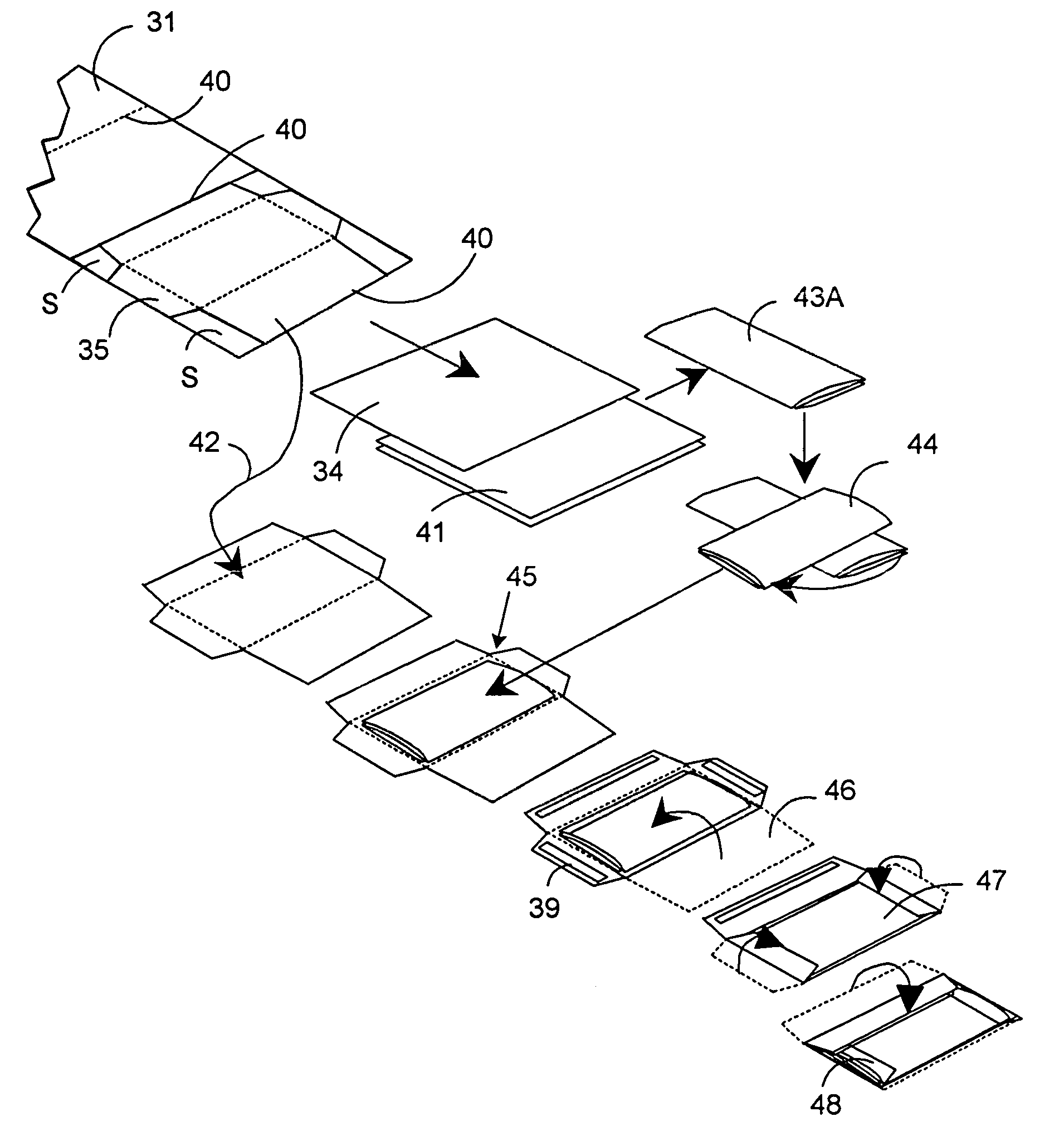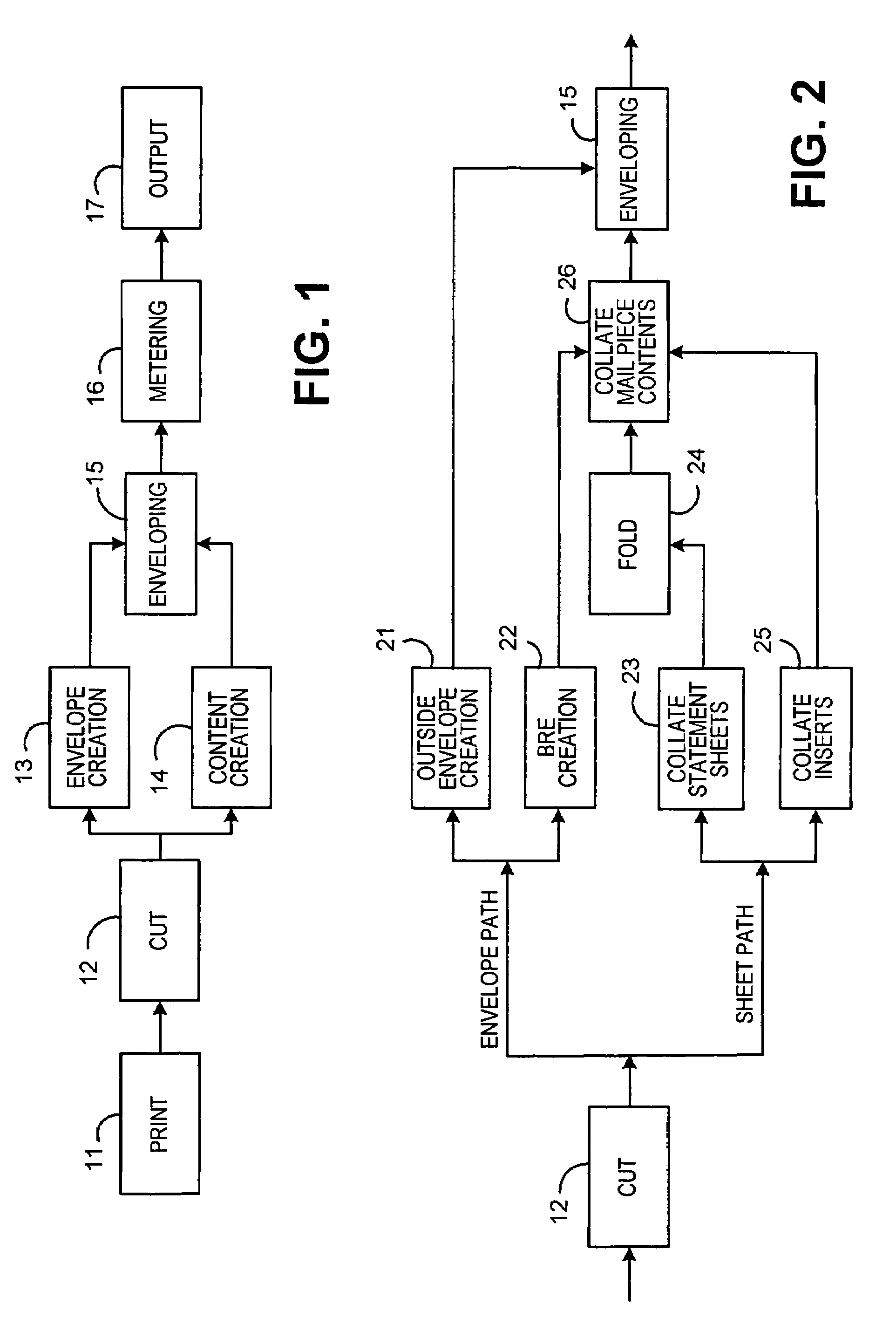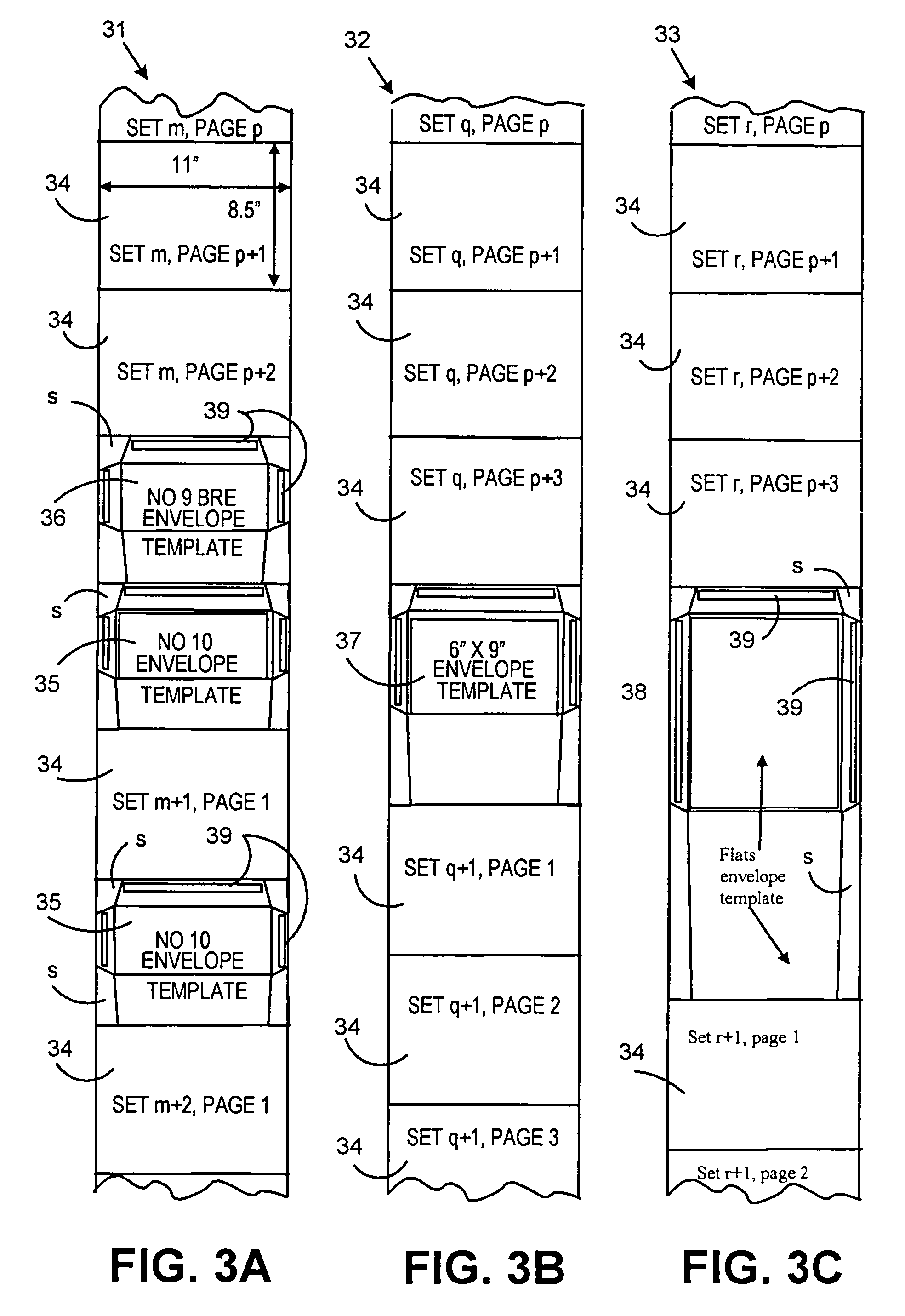Method and system for creating mailpieces from a single continuous web of printed material
a printing material and mailpiece technology, applied in the field of mail creation system, can solve the problems high cost and complexity of current generation of high-speed mail creation equipment, and achieve the effects of saving “back office” costs, improving reliability, and simplifying equipmen
- Summary
- Abstract
- Description
- Claims
- Application Information
AI Technical Summary
Benefits of technology
Problems solved by technology
Method used
Image
Examples
Embodiment Construction
[0035]The in-line envelope solution in accordance with the present invention is a method or system that creates a complete mailpiece from one continuous paper stream. For a given mailpiece, the paper stream contains variable numbers of pages, variable size documents (including inserts), an optional BRE, and the envelope. The machine cuts and folds the documents and envelopes, creates the envelope and BREs, and assembles the mailpiece in one self-contained system.
[0036]The present invention may be used advantageously with improved color Variable Data Printing (VDP), allowing graphical, color content to be printed in-line with text. With increased use of color VDP technology, sophisticated mail communications can be printed in a single step onto a continuous web of material. The present invention provides a method for handling that continuous web to more efficiently produce finished mailpieces.
[0037]Adopting color VDP printing techniques with the present invention will allow efficienc...
PUM
| Property | Measurement | Unit |
|---|---|---|
| angle | aaaaa | aaaaa |
| dimensions | aaaaa | aaaaa |
| volume | aaaaa | aaaaa |
Abstract
Description
Claims
Application Information
 Login to View More
Login to View More - R&D
- Intellectual Property
- Life Sciences
- Materials
- Tech Scout
- Unparalleled Data Quality
- Higher Quality Content
- 60% Fewer Hallucinations
Browse by: Latest US Patents, China's latest patents, Technical Efficacy Thesaurus, Application Domain, Technology Topic, Popular Technical Reports.
© 2025 PatSnap. All rights reserved.Legal|Privacy policy|Modern Slavery Act Transparency Statement|Sitemap|About US| Contact US: help@patsnap.com



